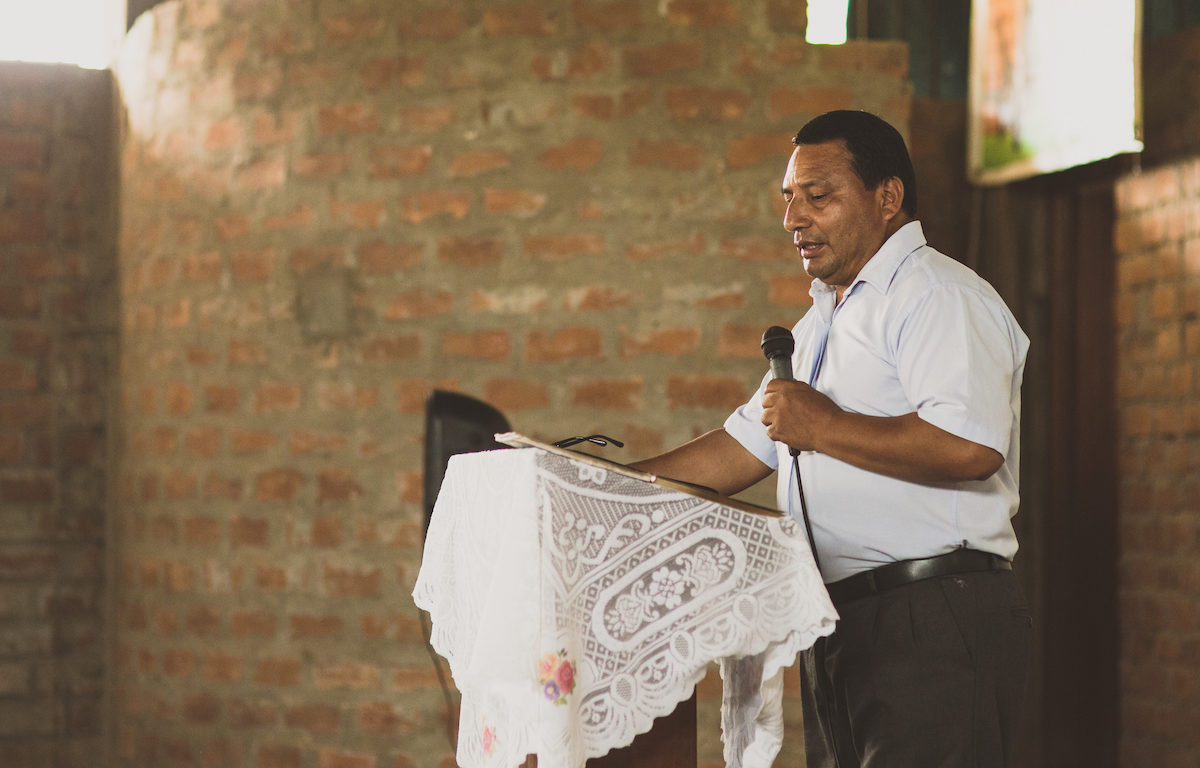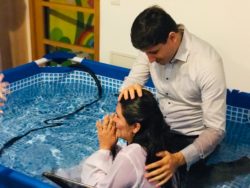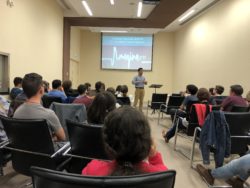
Vicente is married and has two adult children. For years he was a faithful deacon and has always been very esteemed by the church. From the time I’ve known him, he has been a man of integrity and has always had a good reputation as a godly man. While I was still living in Lima before going to the jungle, we came to be very good friends.
Six years ago, Vicente had a stroke. He was taken to the hospital, but the doctors sent him home shortly after. They told the family he only had a very short time to live and that there was nothing they could do for him. He is still alive today, though he is unable to speak and half of his body is paralyzed. However, his joyful countenance is as if he had never experienced this sickness.
I was able to visit with him this month during a visit to Lima, and when I saw him, I couldn’t hold back my tears. Prior to his stroke, he had planned to come to the jungle and spend some time with our family. It hurts me to see him suffering the way he is now. His wife continues to serve him tirelessly and the church has taken on a large role in caring for him.
Some people ask why a good man like Vicente would have to go through something so difficult. Unbelievers say, “How can your God allow this to happen in one of His own followers?” The followers of the false prosperity gospel cruelly say, “This is because of some sin in his life, and he’s now paying for his wrong.”
His experience is very similar to that of Christobal, who is another brother that has been confined to his bed for the past eight years after an accident in the fields that left him paralyzed. And these types of things make us ask challenging questions, like why these kinds of things happen to godly men.
I often minister the assurance of God’s Word in Romans 8:28-39. I have also learned to find a lot of comfort in my own in the face of these hard realities in life by reading about the experience of the early Christians in the book of Acts. The early church was generally a church characterized by faithful obedience to the Lord. Yet, when we read about their experience in book of Acts, and yet they very quickly began to experience trials and suffering. For example, beginning in chapter 7, Stephen is killed and a great persecution against the Christians began, with Saul leading the attack in chapter 8. Then in chapter 12 we read that James, the brother of John, is put to death and Peter is imprisoned.
How do we understand all of this? Why would the Lord allow these kinds of things to happen to His faithful followers? There are things in this life that we will not understand, and there are events that will happen that we wish we could change. And when those kinds of things happen, there is a dangerous feeling that can creep into our hearts, which says, “I will not accept this!”
But in the Lord, we can and must accept His providence even when we don’t understand it. In the end, we can come to the conclusion that Paul reached in Philippians 1:21: “For to me, to live is Christ and to die is gain.” And we can say confidently with him, “For if we live, we live for the Lord, or if we die, we die for the Lord; therefore whether we live or die, we are the Lord’s” (Romans 14:8). Stephen, James, and all the other Christians who have suffered martyrdom in the name of Christ, died giving glory to the Lord. Many others, the enemies of the Lord, have died refusing to give glory to God, as was the case of Herod (Acts 12:23).
What a wonderful privilege we have to live and to die glorifying the Lord Jesus.



